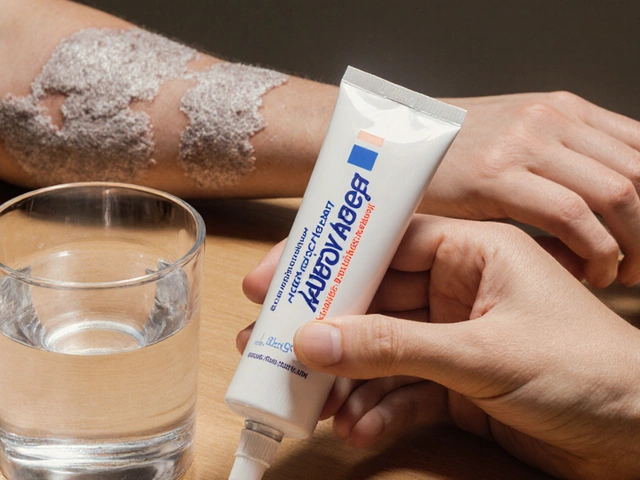Heart‑Rate Control: Practical Ways to Keep Your Pulse in Check
If your pulse feels too fast or too slow, you probably wonder what you can do right now. The good news is you don’t need a medical degree to understand the basics. A few daily habits and the right info about medicines can make a big difference.
Lifestyle habits that affect heart rate
Exercise is the most obvious tool. Even a short walk raises your heart rate for a few minutes, then helps it settle lower when you’re resting. Aim for at least 30 minutes of moderate activity most days – think brisk walking, cycling, or light jogging.
Caffeine and nicotine both push the heart to beat faster. Cutting back on coffee, energy drinks, and smoking can bring the numbers down within hours. If you’re sensitive to caffeine, try swapping your morning brew for tea or water.
Stress spikes your pulse. Simple breathing tricks, like inhaling for four seconds, holding for four, then exhaling for four, calm the nervous system and lower the rate. Practicing this a few times a day can keep sudden jumps at bay.
Sleep matters more than many realize. Poor sleep keeps the body in a ‘ready‑to‑fight’ mode, which raises the resting heart rate. Aim for seven to nine hours of solid, uninterrupted sleep each night.
Medications and supplements for heart‑rate management
When lifestyle tweaks aren’t enough, doctors may prescribe beta‑blockers. These drugs slow the heart safely, especially for people with high blood pressure or arrhythmias. Common names include atenolol and metoprolol – ask your pharmacist for the exact dosage you need.
Some people look for natural alternatives. Clinical trials have examined hawthorn, garlic, and hibiscus as mild heart‑rate regulators. While they aren’t as powerful as prescription meds, they can support a healthy rhythm when used alongside diet and exercise.
Always check with a healthcare professional before adding any supplement, especially if you’re already on a prescription. Interactions can happen, and a quick chat can avoid unwanted side effects.
If you notice a consistently high resting pulse (above 100 beats per minute) or an unusually low one (below 60 beats per minute) despite your efforts, book an appointment. Persistent abnormal rates can signal underlying conditions that need medical attention.
Keeping a simple log of your daily heart rate helps you see patterns. Use a smartphone app or a basic notebook – write down the time, activity, and how you felt. Over a week you’ll spot what pushes the number up or pulls it down.
In short, controlling your heart rate blends everyday choices with informed medical guidance. Start with small habit changes, stay aware of how caffeine, stress, and sleep affect you, and talk to your doctor about any medication or supplement options. Your pulse will thank you.
Athletes, Beta-Blockers, and WADA Rules: Legal Heart-Rate Control and Safe Supplements
Explore how athletes navigate beta-blocker restrictions under WADA, discover legal heart-rate control methods, and find safe supplement strategies for sports.






